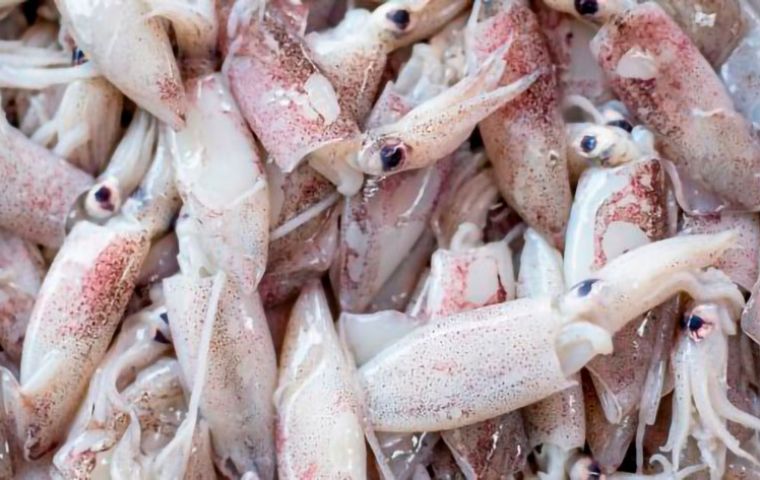MercoPress. South Atlantic News Agency
Falklands' Loligo squid licenses prices climb 12% for the coming season beginning 26 February
 The Loligo squid fishery in Falkland Islands waters is considered to be one of the best examples of fisheries management in the world
The Loligo squid fishery in Falkland Islands waters is considered to be one of the best examples of fisheries management in the world As the vessels catching Loligo squid leave Spain for the Falkland Islands, a leading newspaper from Vigo, closely linked to the Galician fishing industry lobby, El Faro de Vigo, praises the management of the Falklands fisheries, and catch results, but also complains about the cost of licenses, particularly since Falklands' Loligo entering the European Union is subject to tariffs. The piece on Falklands fisheries follows,
The Loligo squid fishery in Falkland Islands waters is considered to be one of the best examples of fisheries management in the world, in which the government and the fleet vessels collaborate. For years, the resource has been stable, rarely offering less than 40,000 tons caught in two annual campaigns.
The fishing is done by vessels operating from Vigo and Marín, Spain, belonging to joint ventures formed by Galician and Islands' ship owners, which have been experiencing a good moment since 2017 in terms of the economic performance of a species that mainly feeds the European market.
Last year alone, the value achieved by Loligo squid reached a value of 365 million Euros, the highest figure recorded since at least 2014, after the second highest amount of catches, 101,158 tons. Some numbers that now the Falklands has taken into account to apply a hike in the annual price of licenses, which will spike by 12%, raising the joint payment to 11.8 million pounds, 13.4 million Euros at the current exchange rate.
At the end of last October, the Falklands Legislative Assembly (the autonomous body that runs the Islands) analyzed a report on the proposed new rates to be set next year based on the nine fishing licenses granted to fish in its waters.
The Loligo squid are the so-called “C” and “X” (as they are divided into two seasons a year), and as it was advanced were discussed between four scenarios ranging from maintaining the price of the previous three years (11.9 million Euros in total) or increase it depending on a number of variables.
To analyze one or the other, the lawmakers took into account, for example, the impact of tariffs to send catches to Europe after Brexit (the Falklands are under UK rule), but also others such as inflation, the rise in the cost of fuel or the current bonanza in terms of catches and prices (the value of cephalopods grew almost 9% compared to 2021 to 3,658 Euros per ton).
Finally although among the ship owners there was the hope of trying to freeze the increase before the start of the first campaign (which takes off next February 26), finally it was not possible. In addition to the nearly 20 million Euros in tariffs paid by the fisheries each year, by 2023 the increase in the price of licenses will finally be 12%, reaching 13.4 million Euros overall. This is the fourth increase since 2017, up 85% from £6.3 million then (€7.2 million).




Top Comments
Disclaimer & comment rulesCommenting for this story is now closed.
If you have a Facebook account, become a fan and comment on our Facebook Page!